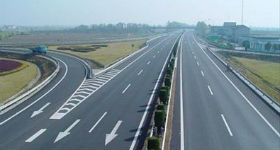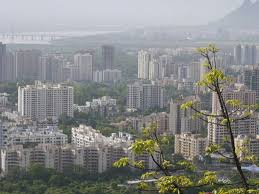Buying a home is a crucial decision in your life as you are going to invest your hard-earned money. It is a wonderful feeling to have a place of your own that you can refurbish as you wish to. If you are just planning to start a family, then you are possibly looking for a place that your children can grow up in and call home.
Looking for a home involves of more than just going through real estate portals and realty websites, going through classified advertising, taking a suggestion from people, driving through neighborhoods to spot for sale signs posted on the front lawn, and visiting open houses.
There are countless other things that you look for other than the look of the house and an investigation of the neighborhood. Here are few ideas on how to dig a little deeper before you come to the conclusion that whether you have found the right house even if the appearance and the price appear right.
Financial Situation: Buying a property for the first home is exciting, but your bank account might not be as enthusiastic as you are. Know how much of your savings you are eager to spend before you get in over your head. Instigate by grounding yourself in actuality and determine the “true costs.”
When the time comes to look for a home, it is advisable to hire a realtor and incur the fees that come with them. Realtors not only know which homes are available in your price range, but they can also help you with the agreements and authenticities.
Once you have purchased the home, you will have more costs you didn’t have when renting one, some of which could comprise of property taxes, HOA fees, and private mortgage insurance, as well as any home maintenance costs that come up unpredictably.
To purchase your home, you may also be considering a mortgage loan. Think of, banks will often be willing to lend you more than you can manage to pay for, so make sure you stick to your budget. Match the expenditures you will be making to your income and you will avoid sinking into debt or possibly losing your home.
Location: Location plays an important role when you are planning to buy an apartment. Whether you have plans to live in a noiseless suburb or a bustling city, deciding where to live is key to being a cheerful property owner.
Talk with those who live nearby and get their judgment of the area. Find out the base home values where you are looking—what is the starting cost for most houses? If you have children you should put more emphasis on the quality of the school they will be joining. You will also have to check how the connectivity to your office is and if it fits your standard of living.
Size of the apartment: Do not invest your money in a smaller unit thinking that you can always purchase a bigger one later. Remove such thought from your mind forever. If you can’t afford a bigger house now, you won’t be able to do so after five years either. Property rates are doubling every year whereas the salary is not (which is a true fact, except it). And once you get stable in a house, it is almost intolerable to shift again.
Looking into the future, you would have kids who would need a room of their own. Your parents might come down to stay with you sometime. You might acquire a ton of household stuff which you would have to put somewhere. So buy a bigger house you can manage to pay for. Look for one with at least 3 bedrooms with a total area of about 2000 sqft. It might pinch a little in your budget now but will surely come in handy later.
Check the site: The layout in the brochure could be altered from the reality. So, do a detailed site visit before booking the property. Interact with persons in the neighborhood as they may know about the illegal occupation or other legal disputes related to the property.
Premiums: Some builders, or rather all of them, ask for a premium for corner units or upper floors. In other cities, lower level floors charge more than the higher ones but in Bengaluru, it is the other way around. This premium rate is normally 20/- to 50/- per sqft per floor. There is no problem in paying the premium charges except that it is not shown in any of the documents. Your house would still be registered at a rate per square feet they have quoted for you. See if your builder can remove it off or reduce it; most do.
Built-up area: The area of the apartment mentioned by the builder is called super built-up area. This is the area for which you are paying the money. This super built-up area includes the area reserved for corridors, lift, gardens and playground etc. The area in which you really get to live in is called built-up area which is typically 80% of the super built-up area. For instance, if you are buying a 2000 sqft apartment, you get only 1600 sqft out of that. Some builders claim to give 85% but that is the limit.
Amenities: Some developers may list a collection of amenities to attract prominent buyers but it is your responsibility to look at the bigger picture. What are the basic facilities essential while staying at an apartment? What is the luxury features the builder is offering? Everything needs to be kept in mind while choosing the right apartment for yourself.
Builder Reputation: Before zeroing in on the purchase, do a bit of homework on the builder’s reputation or track record. Check out their completed projects and go through the customer reviews to get a better understanding of the people you are dealing with. In a metropolitan city like Bengaluru, there are few developers who try to fraud innocent homebuyers and make waver from their promises. If you are thinking of buying an apartment in an under-construction project, be sure that they provide the apartment at the promised possession date, along with the required documents.
Security: Your home should be a safe shelter for your family. Once you have established the safety of the area, one of the first things you will want to do is take your security one step further by fixing a monitored security system in your new home. This not only helps you protect your new investment but it also provides you with peace of mind. Each house is exceptional, just like your standard of living, so find a security system that matches your needs.
Loan: Home loan is the one thing that causes most nervousness to new homebuyers. There are many things to be taken care of while taking a loan.
1. Pre-EMI: In a usual payment schedule, the bank freedoms a part of the loan, say 10%, at each stage of construction. By the time you take ownership, the bank would have paid the entire loan amount to the developer. If the construction takes 20 months, you have to pay the interest for 20 months on the money the bank has released. As and when the bank discharges money, the amount of which you have to pay interest increases. This interest amount is called Pre-EMI.
The substitute to Pre-EMI is to ask the bank to issue the full loan to the developer in the starting itself. Then you can start paying full EMIs to the bank instead of paying Pre-EMIs.
Even though repaying full EMIs sounds bad when you can get away with paying much less Pre-EMIs, it is actually better and will save you as much as 5 lakhs!
When you pay full money to the builder in advance, you get a discount of 4-5%. This works out to be 1.5-2 lakhs, depending upon the price of the apartment.
The Pre-EMIs that you pay do not count towards your loan, do not bring down your loan. You are just paying a convenience fee to the bank. Most of the homebuyers go for this option ’cause they cannot pay full EMI and the rent at the same time.
2. Interest rate: You can go for either floating or fixed rate of interest. Floating rates generally change every quarter but it is up to the bank. Fixed rates are of two types – fixed for a term and fixed for full tenure.
The fixed term is normally for three years after which there is an alteration to the rate, depending on the market condition at that time. There are very few banks which offer a fixed rate for full tenure. ICICI is one such bank. Some banks like Kotak Mahindra Bank offer a loan with interest rate linked to the Fixed Deposit rate.
You can change your loan from fixed to floating rate later and vice-versa but banks normally charge 0.5% of outstanding principle amount for this. There is one hidden cost though here. Your interest and principle components for EMI would be counted again and you might end up paying more.
3. Pre-closure: Most loans last for about 6-7 years even though they were initially taken for 15-20 years. If you get some extra money and want to close off your loan, banks normally charge you 2% of the remaining loan amount. Some banks do not allow you to do this at all.
In ICICI, you don’t have to pay any penalty for this if you leave 12 EMIs. Also, check if you can pay more than your EMI once in a while. Banks typically allow you to make excess payments once in three months or once in six months.
4. Insurance: Banks usually fund up to 85% of the apartment cost. Some banks fund up to 90% if you take loan insurance but 90% is the upper limit. The loan insurance premium is normally 8-10k per year. It covers things like unemployment, disability, death, or loss of property due to fire and theft etc. Unlike life insurance, you won’t get anything back at the end of coverage term. It is better to take simple life insurance if you are not worried about job security etc.
5. Tax exemption: You get tax benefits on pre-EMI and EMI only in the year in which you are taking the ownership of your house.
6. Loan disbursement: All the developers or builders have home loan tie-ups with several banks and they also have loan agents who deal with those specific financial institutions. After your loan has been approved, it takes a lot of coordination between the builder and the financial institutions to pay out the money. All this becomes much stress-free if you take the loan through these builder selected agents.
Is it the right time?
The right time to buy a house is when you have enough cash flow to make the down payment, when you can contentedly afford the scheduled mortgage, and when you have a good credit score. In addition, try to get some understanding of the real estate market at the time you are thinking of purchasing a house.
Sometimes prices escalate and sometimes they decrease. You should avoid buying a house when the real estate market is on the rise. Instead, the best time to buy is when the market is close to the bottom line. You can avoid overpaying for a house whose price value has mounted due to inflationary trends.
According to experts, the best time to buy a house is during the pre-launch offer. Real estate builders run many offers to attract potential homebuyers. As soon as the developer gets the plans approved by the concerned government authorities (and the project is officially launched), the cost of properties shoots up (and keep on shooting up). The number of units on offer during pre-launch is very less though.
Another thing to note is that builders do not release (put up for sale) all the units once they launch the project. They keep some units from selling them later at a higher cost.
 Bengaluru India’s information technology capital will soon have new roads that would make the inter-city connectivity faster and easier, if all goes as planned. One of the many complaints that the denizens of Karnataka have is that roads in the city are really small when compared to major cities such as National Capital Delhi.
Bengaluru India’s information technology capital will soon have new roads that would make the inter-city connectivity faster and easier, if all goes as planned. One of the many complaints that the denizens of Karnataka have is that roads in the city are really small when compared to major cities such as National Capital Delhi.

